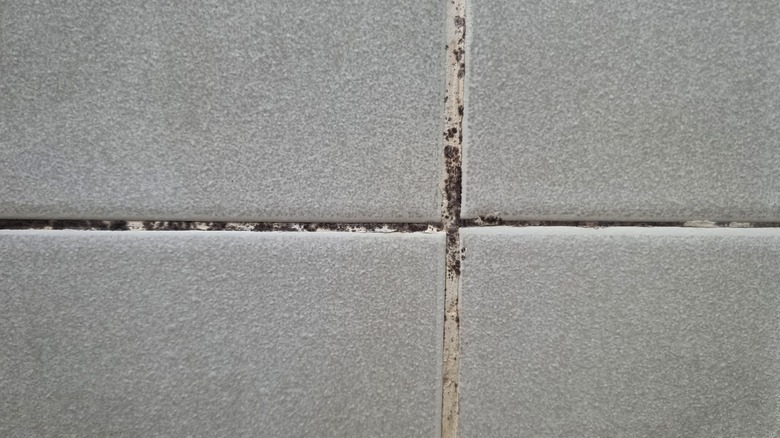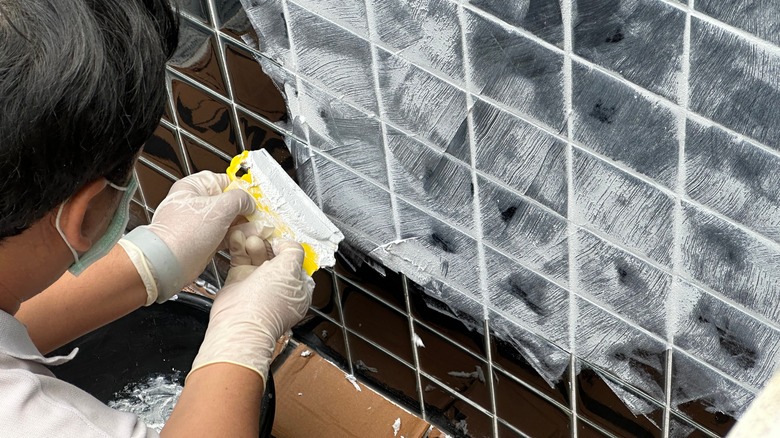The Mold-Resistant Grout You Should Be Using In Your Bathroom
Bathrooms are one of mold's favorite places to set up shop. It's warm, damp, and has little airflow — basically a mold's paradise. Often, shower tiles and grout are the first places to suffer, and unless cleaning moldy grout is your idea of a good time, you can make your life easier by using a specific type that's mold-resistant: epoxy grout.
Grout is an unsung hero in many ways. It keeps your tiles protected and secure, creates a seamless look, and prevents moisture and dirt from getting underneath the tiles. But it can also be a weak point when it comes to mold. Traditional cement-based grouts are porous, so they absorb moisture and debris and allow mold to take hold. Moldy grout is difficult to treat because the mold lives under the surface. Over time, it can damage the material and cause it to chip away, forcing you to remove and replace the tile grout altogether. That's why choosing the right grout is so important. Unlike cement-based grouts, epoxy grout is non-porous and ideal for bathrooms. Here's why it works and what to know before using it.
Pros and cons of epoxy grout
Because epoxy grout is non-porous, it doesn't allow any water to penetrate its surface. That's why it's resistant to mold and mildew: without moisture, mold cannot thrive. Epoxy grout's non-porosity also means that it's more resistant to stains and can stand up to cleaning chemicals without damage. While cement-based grouts require regular resealing to prevent water damage and mold growth, epoxy grout doesn't need to be sealed at all. It's also durable and strong.
As always, there are tradeoffs when using this type of grout. It can be more expensive as well as more difficult and time-consuming to install than cement grout. It dries quickly, so it must be mixed in batches and applied swiftly. It works best for seams greater than ⅛ inch wide and is not ideal for outdoor or sunny areas because it turns yellow with sunlight. Also, avoid using epoxy grout with stone, unglazed tiles, or other porous materials, as it may penetrate those materials and cause damage.

